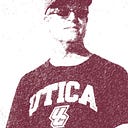Star Trek: Television’s Open Source Universe


Gene Roddenberry
THERE HAS BEEN NO OTHER TV SHOW in history that could be considered as “open source” as Star Trek. In true open source fashion, fans have used the universe originally created by Gene Roddenberry in 1964 as “the source code” for fan-made films, cartoons, games, etc. If one considers the characters, settings and general plots of Star Trek, then it’s easy to understand how Star Trek has been a true open source universe.
“Open Source,” originally defined as open and collaborative software development has expanded to include a broader set of values. As defined by opensource.com:
“Open source projects, products, or initiatives embrace and celebrate principles of open exchange, collaborative participation, rapid prototyping, transparency, meritocracy, and community-oriented development.”
Roddenberry, himself, wrote in the introduction to “Star Trek: The New Voyages,” a commercially published two-volume set of fan fiction:
“Eventually we realized that there is no more profound way in which people could express what Star Trek has meant to them than by creating their own very personal Star Trek things.”
More than any other work of fiction, Star Trek, its fans, and Roddenberry himself, have truly embraced the open source “way.”
Keep Boldly Going

There have been some incredible fan-made productions that have used the “open source” of Star Trek and modified the source work and released it free and open for others to collaborate and expand upon. Notably, Star Trek Continues has faithfully adapted the “source code” of Roddenberry’s universe and re-created and re-distributed it to everyone. There have been seven episodes released and the series begins where the original series ended: at the conclusion of “Turnabout Intruder.” Others have included Star Trek: New Voyages and Star Trek: Of Gods and Men, and many others.
No Intelligent Life Detected
Fan-made productions were seldom met with any protest, but since CBS has announced their new series, Star Trek: Discovery, will be telecast on the paid-streaming service, CBS All Access, starting in 2017, fan-made productions are now seen as threat to the franchise.
The open source concept came under fire recently, however. Axanar, a crowd-funded fan feature has crossed CBS’ sensors and set off a red alert. CBS, the copyright-holder to the Star Trek universe has entered into litigation with Axanar Productions. One of CBS’ stipulations is that no fan-made production included actors who have played parts in official Star Trek productions. Axanar’s cast includes J.G. Hertzler, who played General Martok on Deep Space 9 and Gary Graham, known as Savol, on Star Trek: Enterprise. It goes to trial in January 2017.
It’s unfortunate that CBS won’t allow open source Star Trek productions to continue, as some of them are equal to, or even better, than some of the official renditions. Star Trek Continues, produced by volunteers and spearheaded by Vic Mignogna (who plays Kirk) is as true to the original series as the original series was. The part of Chief Engineer Scott is even played by the son of Star Trek’s original “Scotty,” James Doohan: Chris Doohan.
Tea. Earl Grey. Hot. With a Hamburger.

Beyond using the Star Trek universe as open source “code” for fan productions, Star Trek has contributed to the “real” open source universe as well.
Tricorders, those hand-held devices the crew used for detecting life forms, judging the quality of the atmosphere, or finding just where the hell they beamed down to, are being developed by a variety people, using open source technology. Peter Jansen, of the Tricorder Project, is doing just that.
Recently, two German students were on their way in creating an open source “meat-printer.” Inspired by Star Trek’s replicator, their invention, “The Cultivator,” uses bio-printing to allow users to create, or “print” what appears to be “meat.” In the Star Trek universe, crew-members could simply order the replicator to produce whatever meal they desired via voice command. Sometimes, with disastrous, or even, hilarious, results. A replicator, or cultivator, in the kitchen would lead to a completely new way of food preparation and with the use of plant-based materials, will open up a whole new, errr, universe, for vegans.
“She handled… real meat… touched it and cut it?”
— Keiko O’Brien from “Star Trek: The Next Generations episode, “The Wounded.”
Computer: End Program

In the opening episode of Star Trek: The Next Generation, Will Riker locates Data in a forest. However, the forest was not real, it was a “holodeck program” housed right inside the Enterprise. The holodeck concept was used many times during the subsequent Star Trek programs and created a fascinating array of possibilities, problems, disasters and drama. Virtual reality, as it is today, is nowhere near the point of replicating a holodeck, but open source virtual reality is on its way to making virtual reality less virtual and more reality. Razer, co-founders of Open Source Virtual Reality (OSVR) bill themselves as “the largest open source virtual reality consortium in the world,” is working to that end.
What could the open source universe of Star Trek mean for the future of entertainment? The model could be applied to any future production. There are open source tools for screenwriting, such as Trelby, storyboarding, such as StoryBoard Pro, open source tools for broadcasting, and just about anything else needed to create the physical and intellectual manifestations of the story. However, the basic “source” of the story, such that Star Trek was, is, well, paramount. Without an “open source” story the universe cannot expand and we’ll be stuck in the Alpha Quadrant forever.
Live long and prosper.
Links to sources used in this article:
Tricorder Project: http://www.tricorderproject.org/
Cultivator: http://3dprintboard.com/showthread.php?14013-Cultivator-3D-Printer-For-Meat-Concept
Axanar: http://www.axanarproductions.com/category/cbsparamount-lawsuit/
Roddenberry on Fan Fiction: http://www.orionpressfanzines.com/articles/roddenberryonfanfic.htm
Star Trek Continues: http://www.startrekcontinues.com/
Of Gods and Men: http://startrekofgodsandmen.com/main/
The Open Source Way: https://opensource.com/resources/what-open-source
CBS All Access: http://www.cbs.com/shows/star-trek-discovery/
Open Source Virtual Reality: http://www.osvr.org/
Open Source Broadcasting: http://www.opensourcebroadcast.com/
Screenwriting: http://www.trelby.org/
Storyboarding: http://open-tube.com/four-free-storyboard-software/
